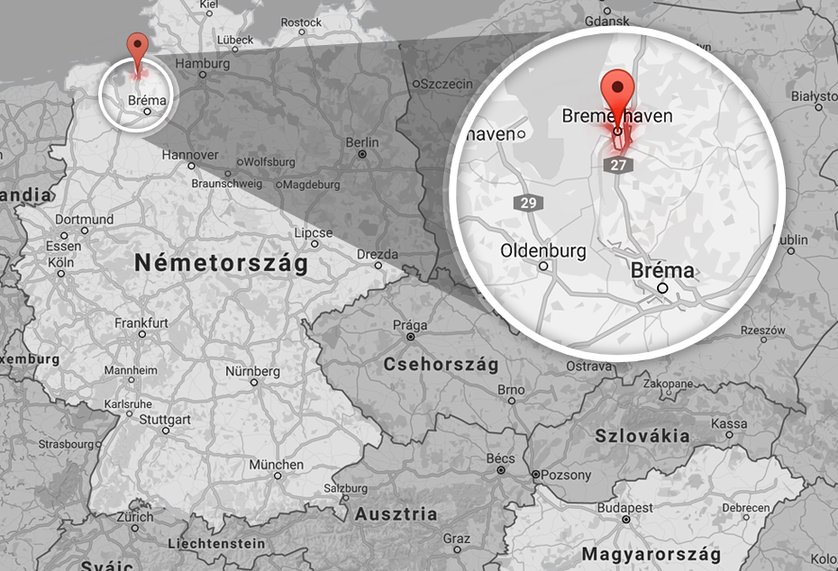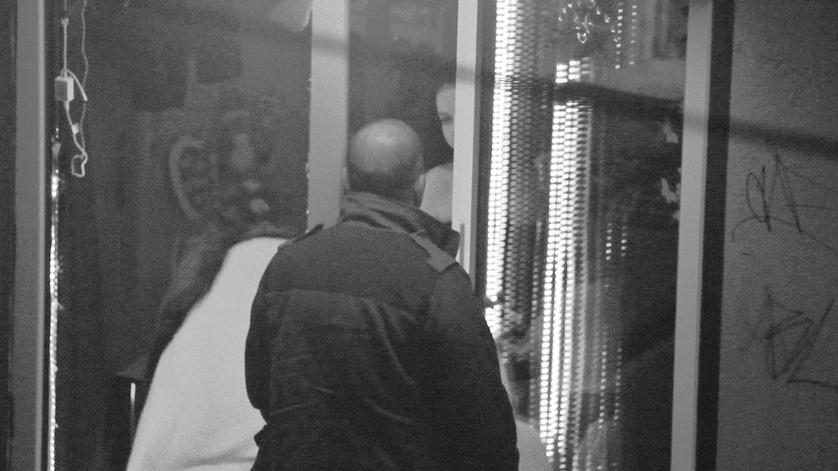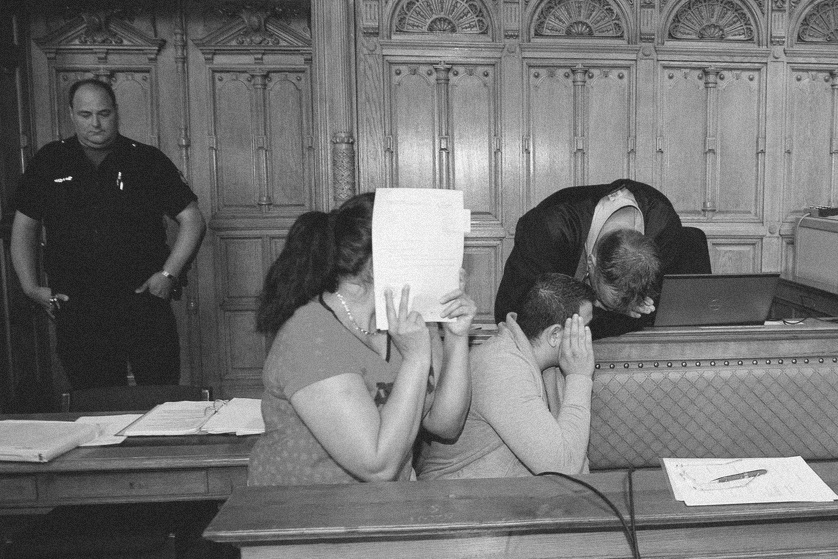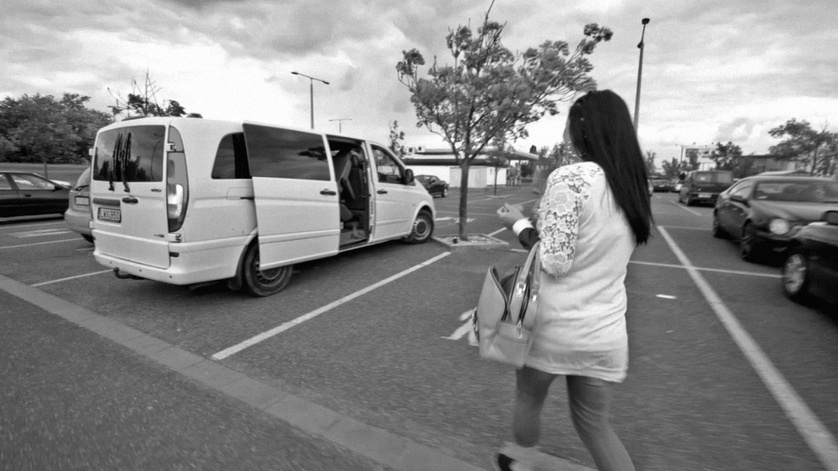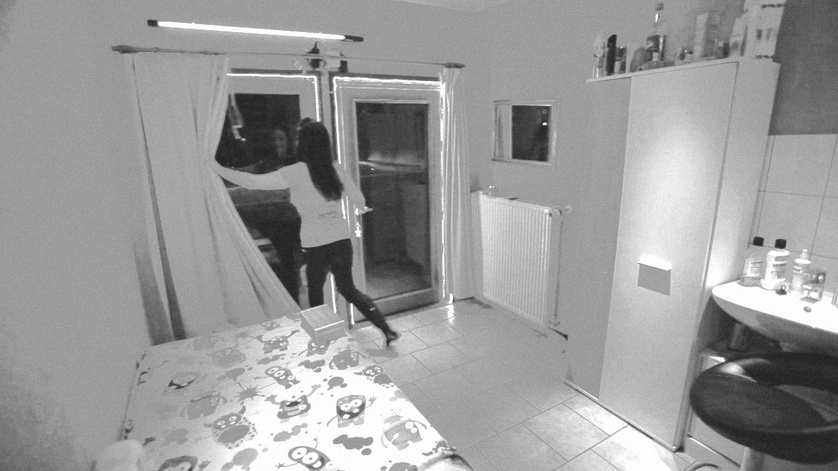More and more Hungarian women are moving to Germany to become prostitutes. Most of them offer their services 12 hours a day, and a large majority of them hate it. Their horrible economic conditions at home, the pressure from their family, the temptation of quick money, no knowledge of the language, and an urge to belong to someone or physical or psychological coercion all lead to these women handing a large part of the money made with the hated but lucrative sex work to a man. Even if they could easily keep the whole sum to themselves. Modern pimps look for young women on Facebook who then they put in business abroad, and not even their personal presence is required as the women are wiring the money back home.
How does the red light district of Bremerhaven work?
A messy-haired Béla sleepily stares out the window. From the street, one can only see his naked upper body. He arrived back to Bremerhaven the previous day after spending a few days in Hungary with his wife and children. The tidy rental is full of light, and Béla's blond, long-haired girlfriend is just slowly coming to herself from her slumber, despite it being three in the afternoon. But business was hot the previous night, and they only managed to get to bed at nine in the morning.
The man looks at his clock and begrudgingly acknowledges that they missed the group arriving at lunchtime. They are the clients who'd rather spend their lunch break with a quickie in the red light district than a cheap meal at a local restaurant. "But it's alright," his voice softens, "it's Friday, and that is always the busiest night of the week."
The short, almost boyish Béla does not have a job in the traditional sense. Despite this, he told me later during one of our conversations that he came to Bremerhaven to work. In practice, this means that he lives in the port city with his sex worker girlfriend, regards himself as her manager and lives off of her pay.
He stands in the window absorbing the view of Lessingstrasse, the only street in town where prostitution is legal. It only takes a five-minute walk from the end of the streets to stand amongst the giant cruise ships and gently rocking sailboats docked in the kilometres-long port on the shore of the eternally cold North Sea. Lessingstrasse is not a hidden back alley, it is more-or-less in the city centre, it actually opens from one of the main streets, Hafenstrasse, which houses the world's most filling €2 kebab, in a location strategically close to the docks. Besides the local men, most clients are sailors and crew members of the cruise ships. Up until its termination in the early nineties, the clientele included the tens of thousands of American soldiers stationed at the nearby military base.
The street fronts of the houses on both sides of the street are lined with the glass doors of the sex workers' little rooms, or cabins, as the locals call them. Béla's girlfriend is renting the cabin right across the street, so Béla can keep an eye on her. The glass door is a sort of shop window, where the product on display is the prostitute who dances with a smile - or an expressionless, blank stare. If the curtains are open, the girl is available, if they are closed, she's busy. The clients walk up and down in front of the windows, or cruise around with a car, looking for a sex worker who is to their liking.
The red light district of Bremerhaven had been in the same street for the past 150 years, where 180 prostitutes are currently working according to data from the local police, two-thirds of them Hungarian. There are fifteen large tenement buildings in the street and there are four to six shop windows at the bottom of each, and business is blooming: I've been there three times over the course of six months and I could never arrive at such a bad time or in such horrible weather that would have caused all the windows to be empty.
„The high-time starts around 10-11 PM on the weekends and lasts until seven in the morning. Some people come before they go out to party, some after. There is a before-work peak between 6 and 8 on weekday mornings. These clients can't get away from home, so they use early work as an excuse to visit sex workers. Lunchtime on weekdays can get just as busy”,
Erzsébet Schmitz told me. She's a Hungarian woman working for the company renting out the cabins and flats of nine buildings in the street.
The clean and tidy rooms behind the windows are 6-8 square metres large and feature a wide couch, a shower, a bar stool, a few large plush toys and some tacky pictures on the wall. Béla and his girlfriend - like all others in the street - are paying €60/day for the cabin and an extra €20/day for their flat, amounting to €2400/month altogether. This includes utilities, and this rent is considered average in German brothels. They rent the cabin and the flat from the same company that employs Erzsébet Schmitz.
Twenty minutes with a client costs €30, half an hour is €50 and a full hour is €100. At peak time during the weekend, clients are coming and going all night. An entire sports team is arriving with a bus, a man in a wheelchair is carefully rolled into another cabin, and we even met a local politician who is a client returning every two or three weeks ever since his divorce ten years ago.
The 20-minute €30 basic package includes oral and vaginal sex, both with condoms, additional extras are subject to negotiation. Anal sex, fetish games, BDSM, roleplay, domination could be extras, just like sex without a condom, touching breasts, and kisses. A basic package is usually a quick event - sometimes only 5-6 minutes pass between a fully clothed man entering and leaving.
„It's mostly this: the guy enters the room, I tug on his cock twice, I put the condom on, get in doggie-pose for a few seconds so I don't even see his face, and that's the whole story. If he wants anything more than that, he has to pay,”
Muci explained to me. There are special cases, a Hungarian sex worker going by the name "Diamond" told me about them:
„As you can see it's hard to say how many clients it takes to earn your rent - sometimes a single client brings hundreds of euros, sometimes it's just thirty.”
A company called Feda Ug. owns nine of the buildings in the street, Béla stands in the window of one of them. The company is owned by two Dutchmen, Jan Engel and Jeroen Pols, and they employ Erzsébet Schmitz, the manager and madame of the red light district. An international arrest warrant is still in effect against her based on the judgement of the Nyíregyháza District Court for pandering with the involvement of a criminal organisation, but Germany refused her extradition since the activity she was condemned for is considered legal in Germany. The decision of the Bremen prosecutor stated that the woman never engaged in any exploitative crimes against the sex workers, more than that, she informed the police whenever she came across such acts. Dr. Emese Borsodi-Buss, spokesperson of the General Prosecutor of Hungary's Szabolcs-Szatmár-Bereg County said that forensic evidence points to Erzsébet Schmitz being in touch with not only sex workers but pimps as well, providing cabins for the girls at their requests, contributing to the exploitation of Hungarian women, which constitutes pandering with the involvement of a criminal organisation. Hungarian laws define that as a crime, and since Erzsébet is a Hungarian citizen, she has to abide by Hungarian laws.
German company data says Feda rents flats and commercial units. The registry does not include that all of their tenants are prostitutes and rent is collected by security guards on a daily basis.
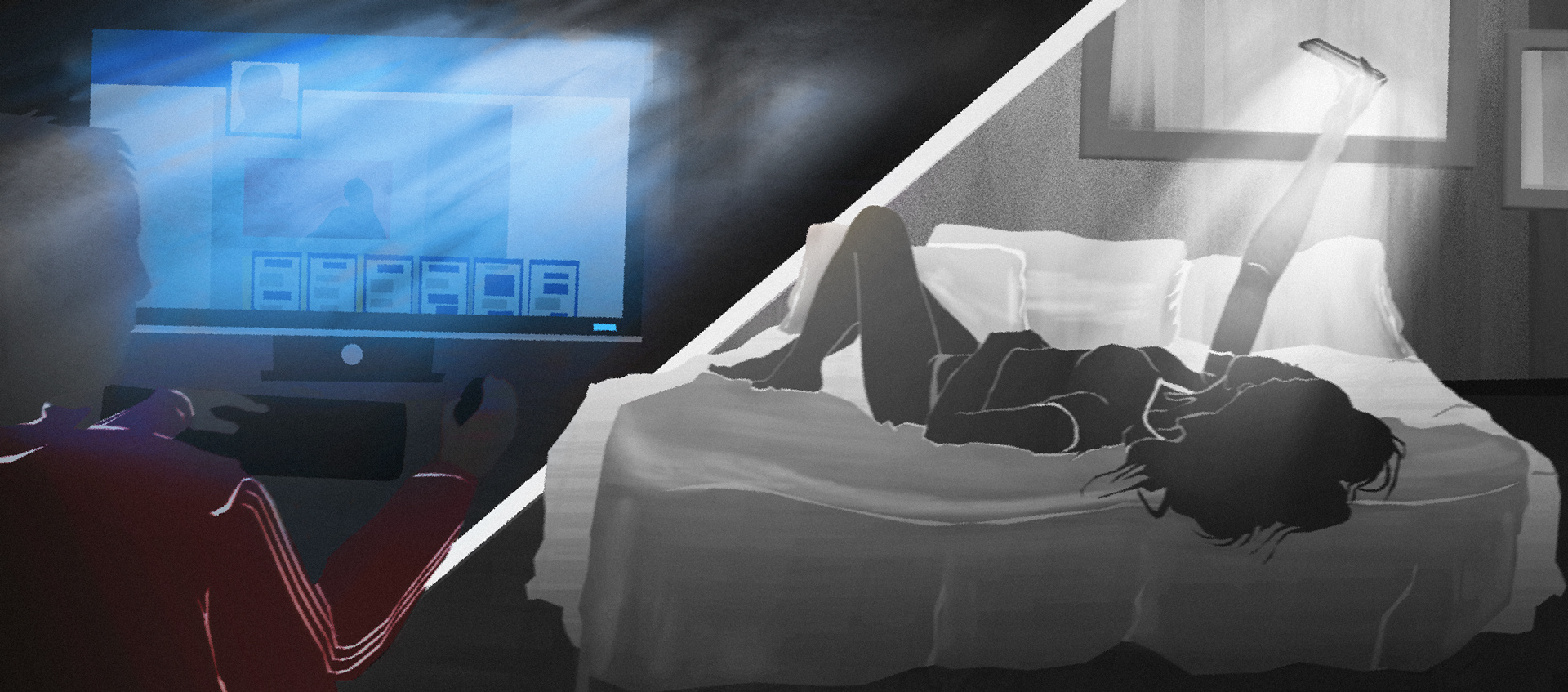
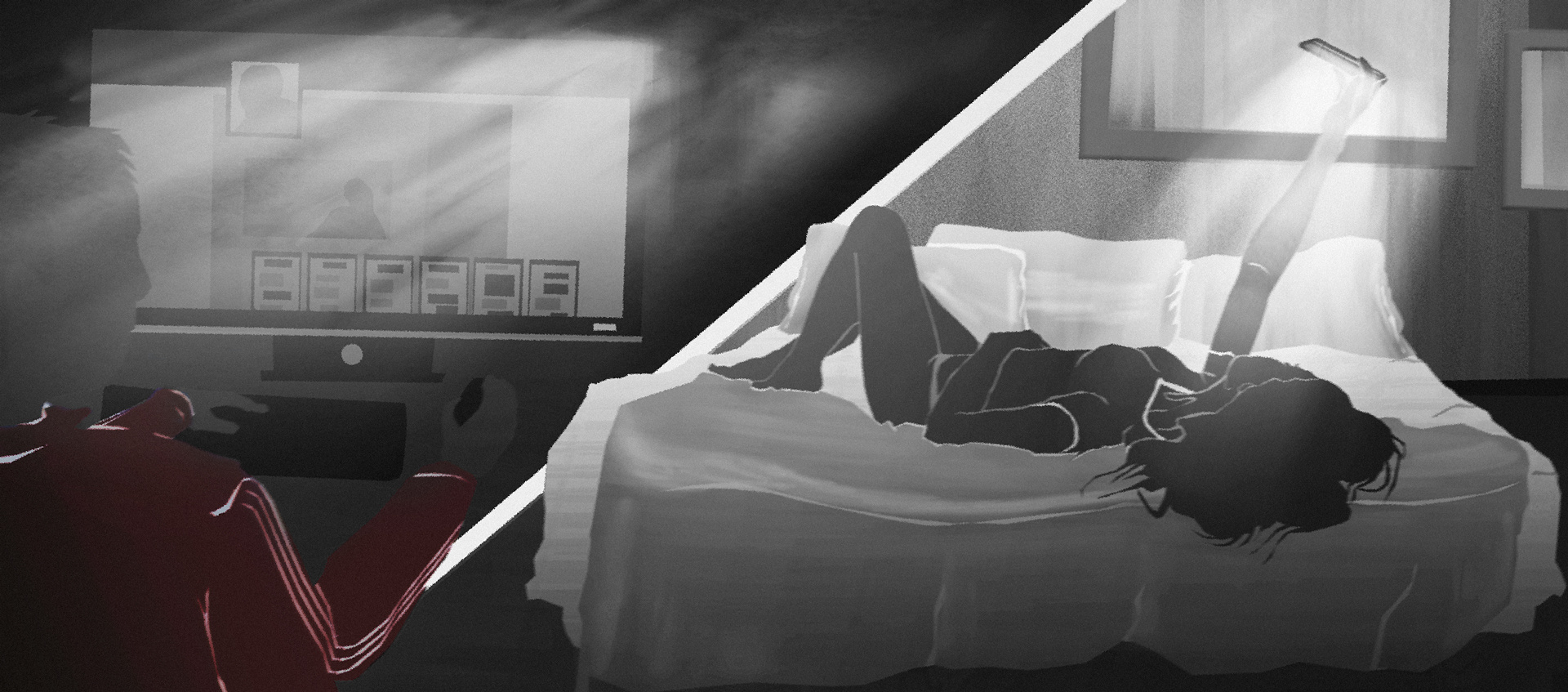
How does someone become a pimp? How does someone become a prostitute?
The simplest answer is money or at least the promise of money. Sex is considered a taboo in Hungary, and the Hungarian society is extremely prejudiced. A Hungarian is quick to pass judgement over a prostitute just for making a living from a morally questionable profession. But there is a multitude of complex economic, social, and psychological factors that influence a woman's decision to provide for herself and for her family by having sex with strangers and to share her income acquired this way with someone else.
Béla's girlfriend gives half of her earnings to him every day, and she is not alone. I've conducted interviews with around 40 sex workers in the past six months, and there were only two of them who kept all their earnings for themselves to only serve their future, their purposes.
Éva Ádám, social worker caring for sex workers in Germany said she had never met a single Hungarian prostitute who did not share her income with a man.
„Almost none of them are here alone. All of them have boyfriends, I call these relationships "business-love". A woman could work without a man, but they do not do that. The reason usually is the fear of being here alone. Of course, there are differences between pimps and pimps, and the best case scenario is that a pimp does provide safety, but that is exceedingly rare,”
she said. The social worker also told me that these "business-loves" often slip out of hand as the pimp starts abusing her partner. 'How come you only earned that much, stay on the street until you've made enough,' and often times it turns into a beating and threats that often involve the woman's family.
Thousands of Hungarian women make the decision by themselves to become prostitutes abroad, but human trafficking, exploitation and coerced prostitution are not without example either. The Bremerhaven red light district is no exception. The local police say that - just like anywhere in the world - there are probably more cases like that than what gets reported.
At the end of 2016, there are two cases in progress in connection with the Bremerhaven red light district. Early November the trials of a case commencedat the Nyíregyháza District Court, where an entire family is charged with pandering. Nobody abused the women according to the charges, everything was consensual, but they are in court anyways; the family took half the women's earnings for connecting them to clients. The other case is tried in the court of Bremen, Germany, and it's about a Hungarian woman and her son forcing another woman to prostitute herself in Bremerhaven. Weser-Kurir reported that according to the charges the woman had been a prostitute previously, but then the Hungarian woman became her pimp who forced her to serve as much as 20 clients a day, sometimes without protection, for €20 each. The mother and son spent her earnings on drugs, alcohol, and expensive clothes.
If there were less than 20 clients, they kicked, beat, and threatened her. She had to pass almost all of her earnings on to them, and if she rebelled, they beat her again.
– the newspaper wrote. The Bremen prosecution says sometimes she was grabbed by her hair, put under a cold shower and sent her to the street. Local paper Nordsee Zeitung reports that a witness at the trial said the 23-year-old son raped the woman twice and sent her back to work. Sometimes she was kicked unconscious and threatened her holding a gun that he will kill her.
Not many similar cases become public, even if many police departments in Germany, including the Bremerhaven Police, have special "red light district" task forces. The one in Bremerhaven operates since 1999, and since there are many Hungarians, they walk through the street with a Hungarian interpreter once every month checking sex workers and the men arriving with them, as Andre Mauritschat, a detective on the task force told me. Bremerhaven police patrols walk the street multiple times every day.
The latency of coercion and human trafficking is high as the intimidated victim often does not dare to turn to the police, and it is hard to find evidence for beatings behind closed doors and verbal abuses, the detective from the task force told us. Police data shows that despite the fact that there are almost 200 sex workers operating in the city, there were only 5 cases of forced prostitution in 2015, 9 in 2014, and 7 in 2013. More than half of the victims were Hungarian women according to the statistics, and in the majority of the cases, the pimps were Hungarian as well. The detective said that the number of unresolved cases is even higher.
More and more Hungarian women are choosing prostitution abroad, and not only in Bremerhaven, as the number of Hungarian prostitutes increased in Berlin and Hamburg as well. The staff of Ragazza-Kontakt, a Hamburg-based organisation providing help for sex workers met four Hungarian sex workers during the entirety of 2011, but they have met 44 such people in 2016 just until August. But the German capital is no exception: A third of those requiring assistance Frauntreff Olga, an organisation helping street prostitutes, are coming from Hungary.
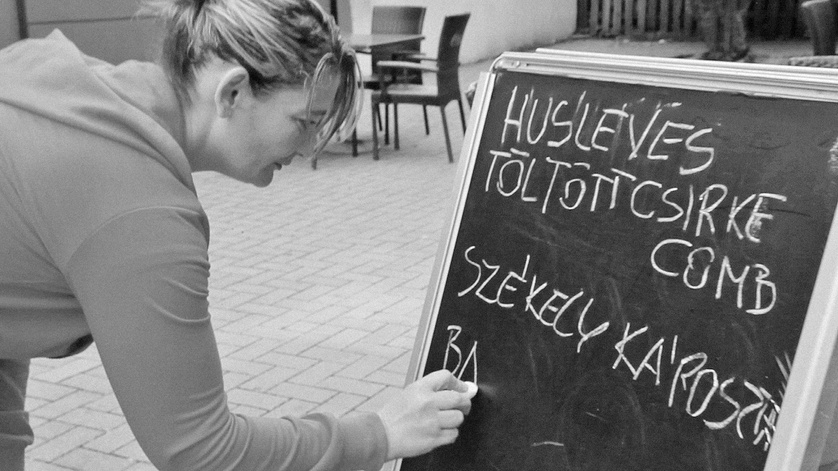
The number of Hungarian prostitutes had been on the rise in Bremerhaven, Hamburg, and Berlin since 2012. Walking along Lessingstrasse in Bremerhaven or the Kurfürstrasse in Berlin can easily give one the impression of being in Hungary, as almost all the women and men hanging out on the streets speak Hungarian. This was not the case five or six years ago.
Emigration picked up amongst sex workers since the introduction of the new Misdemeanors Act in Hungary. Police can since issue prostitutes fines on the spot if she is not in the designated area - earlier a court decision was needed for a fine. As the Hungarian Association of Sex Workers says:„This measure stopped judicial control, there is no attorney present, no evidence filed, no chance for appeal and the misdemeanours department became a place for sending out cheques.”
Hungarian sex workers are going abroad for better payments and no fines, to countries like Germany, the Netherlands, and Switzerland, where prostitution is legal, and therefore, according to the sex workers themselves, safer.
Information about where it's worth trying your luck abroad spreads like wildfire amongst prostitutes and their pimps. Béla's girlfriend was on her way home from Zürich when she heard about Bremerhaven from another sex worker. The town seemed attractive because the local red light district was managed by a Hungarian woman. Even though prices are lower than in Switzerland or other parts of Germany, Bremerhaven was notorious for how much it's worth it for Hungarians. The Hungarian woman organising life in the red light street was sort of a guarantee for Béla, especially that neither he or his girlfriend spoke German. The woman on the bus told her that Erzsébet Schmitz is trustworthy and she will help to kickstart the business.


But why don't sex workers keep all of their money
The sex workers I managed to interview in Germany did not choose this line of work because they were forced to do so, at least not in the classic sense of the word. They were not kidnapped, they were not stuck in a dark van with all their papers taken away, and threatened with beatings if they didn't stand on the corner.
Still, they're handing a portion of their earnings off to a pimp. All cases are different, but in most, pimps have strong emotional leverage over the women. Some work with a pimp because he seduced them and they fell in love, some just prefer to be in a foreign country with a partner to whom they can talk every night, someone they can share a meal with, or simply because they think they need a man to keep things afloat in a country where they do not speak the language. Or because of a mix of all these factors.
The fact is that the number of prostitutes working just for themselves without any connections or assistance is negligible, despite German laws accommodating that. Most of them depend on a man, and the nature of this dependence can be different from case to case.
Sometimes a woman is already working as a prostitute, but she would like to try her hand at working abroad, so she turns to some acquaintance who runs girls abroad. This acquaintance then proceeds to ask for a significant cut of her earnings in return for the information on better places or the connections, sometimes for as much as a phone number. The 'better places' are the civilised ones that are clean, have no hidden fees, and women are not forced to do anything they don't want to do.
In the eyes of a sex worker, a pimp embodies safety: a person with a reputation in the district can ensure that they can work peacefully, even if the pimp is not present personally. It's enough if the name is known enough that no other pimps mess with prostitutes that belong to that pimp.
Sometimes the pimp convinces a woman to become a prostitute. The pimp selects a girl from around his social circle, a club, or even from Facebook, then spares no time and effort to let her be aware that she could make 3000-5000 euros from prostitution. He sends her pictures of his car, his expensive clothes, sends gifts until she decides that she's in.
Easy money always comes up in conversation if one asks a prostitute about their motivations. They are battling financial hardships or poverty, then out of the blue, someone appears with a lucrative offer from abroad.
„It's just money, money, money that is driving me, I'm not here because I'm planning to spend my life in Germany. I just want to build a foundation for my future. I need money for that. There are no opportunities in Hungary, we can try, but the money people make there is not enough to survive. I'm used to a certain level, and I just wish to maintain that level. I'm making good money, so I can afford to support my family, and that is good.”
said Zsaklin, who's been working as a prostitute in Germany for seven years.
Károly is just making a strong, black coffee in the flat next door from Béla's place. He is masking his embarrassment from the interview by joking around as he is trying to get the stove to work. He would like to heat his lunch, but it doesn't seem to be happening. It's early afternoon, Károly lives in the flat with two sex workers who are out shopping for groceries.
He acquired - that's how he put it - one of these women from Facebook.„There is the girl I've been living with for two years now. Then there is this other one who entered my life four months ago, we talked a lot on Facebook back then. I've been looking at her pictures, I texted her, we have added each other, we talked a lot, and now she's here. And she knows about my other lady too, they coexist peacefully, they can work peacefully. She's sending money back home for her family, her child whenever she can, every month, every two weeks.”
Károly explains.
He invested €200 in the „new prostitute”. She got some new clothes, fake nails, and he paid for her travel too. There are some - legally operated - bus lines organised in a carpool system that stop at red light districts in Northern Germany, I myself rode one of them as well. The ticket is around €80.
he third case is when a prostitute is abroad with a man she regards as her love, just as Béla's girlfriend refers to him as her sweetheart.
„Well, I think someone is considered a pimp if she has more girls than one. My partner is not a pimp, because I'm the only one for him, and we love each other. He's not with me for the money"
she analysed her relationship to his man, and most sex workers said they are in the same situation. So the people that the world unfamiliar with the inner workings of red light districts simply call pimps are often the lovers, friends, of the prostitutes, sometimes the fathers of their children, their domestic partners, or their husbands. Even if - like in the case of Béla - they have a wife and children waiting for them in Hungary. In this specific case, nothing is hidden - all participants of this "business love" are aware of all aspects of the situation.
Only the women are making money in this relationship, as they are having sex with clients 8 to 12 hours a day, sharing her earnings (in a good case) 50-50% with their man. These men in Bremerhaven have no jobs, this is how they describe their roles:
When a sex worker agrees on an appointment with a client, the sex worker sends a text message to her boyfriend about what she agreed on with the client. She also sends a text after the appointment is over. First of all, this is income control, secondly, this means protection. If the client takes a suspiciously long amount of time or doesn't want to leave, the boyfriend can save the partner. There are security guards in this red light district though, so their protective role is somewhat diminished here.
All sex workers talk about their predicament as a transitory period. I've met a woman who told me twice that she will only keep on doing this for two weeks , once in February, then half a year later in August once again. Diamond has been living in Bremerhaven with her boyfriend and their daughter for years. Her older child - raised by Diamond's mother in Hungary - has no idea how her mother makes a living.„She believes I'm cleaning here. The small one can't comprehend it yet. She's still breastfed, I go upstairs to her every two hours, otherwise, she's spending all her time with her dad. They go walking, they go to the mall, they ride in his car, so my mind is completely at ease as my partner is completely normal, and he's not just burning money. We agreed that I will stop this when our little girl is three. I want to stay home, cook for my family, and take care of animals. After that point, it's up to him to bring home the bread.”
The law on prostitution in Germany had been rather liberal since 2002 up until the new law was passed in 2016 that has much stricter provisions. But at the time not only prostitution was legal, but also the halo of pimps and madames that surrounds it - as long as no abuse, coercion, or exploitation of sex workers is happening. Prostitution is not banned in Hungary either, but all other activities around it are severely punished - running girls, connecting prostitutes and clients, even renting real estate to prostitutes is forbidden. Sex workers in Hungary can work in the flats they own or in the (few) designated public areas. What the pimps in Bremerhaven and Erzsébet Schmitz, the madame are doing fit the legal characterisations of pandering, procuring for prostitution, and living on earnings of prostitution as defined by the Hungarian Penal Code. The interesting twist in the story is that all of this is legal in Germany.
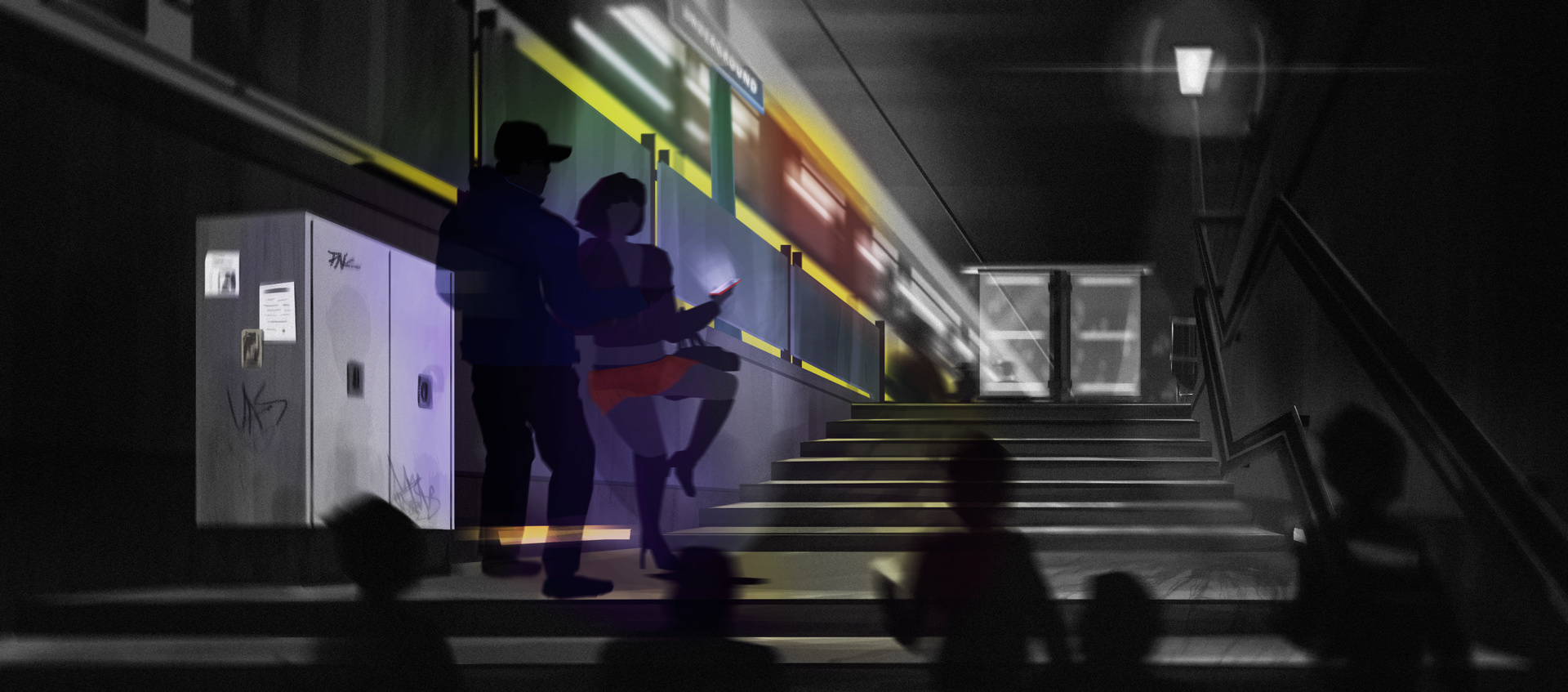
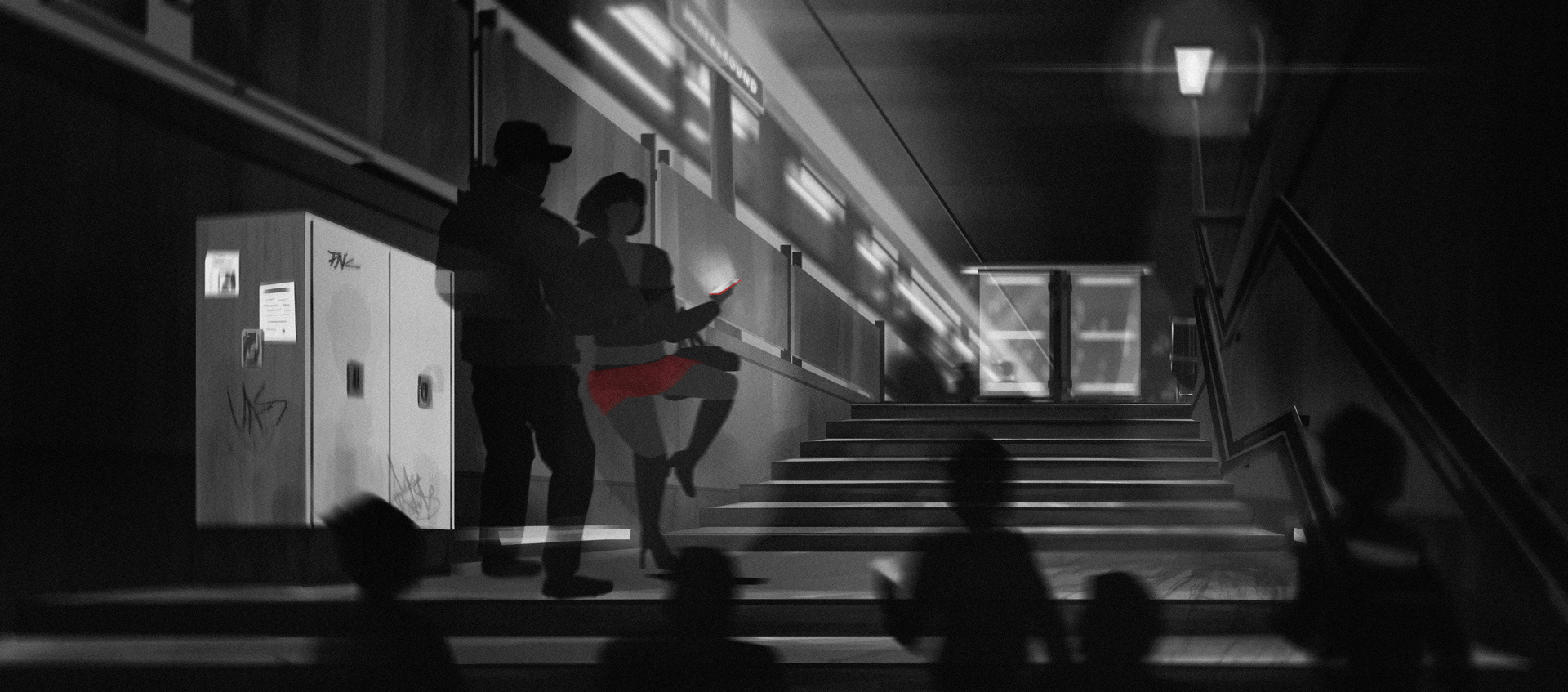
What do Hungarians think of prostitution?
Prostitution - though primarily done by women - is the most negatively judged by women, as the representative nationwide survey conducted by Závecz Research in August showed (the survey involved a representative sample group of a 1000 people with a +/-3% margin of error).
Three large groups were identified by cluster analysis and other statistical methods. Most Hungarians are lenient towards prostitution, this tolerant group makes up 43% of the population.
They are the ones who believe every woman has the right to decide if she wants to work as a prostitute or not, and they are the ones who agree that reintroducing regulated brothels in Hungary would be a good thing. They regard prostitution to be a natural social phenomenon that can be regarded as work. Representatives of this group can mostly be found among high school and college graduates, among men, in the 40-50 age group. Most that are lenient towards prostitution live in Budapest.
-
All adults have a right to decide if they want to become prostitutes.
65% 35%
- Agrees
- Disagrees
-
If there were more jobs in Hungary, we wouldn't have this many prostitutes.
45% 55%
- Agrees
- Disagrees
-
Prostitutes deserve the beating they might get from clients. Why did they choose this job?
14% 86%
- Agrees
- Disagrees
-
It would be good if brothels could operate in Hungary.
50% 50%
- Agrees
- Disagrees
-
Prostitution is just an extreme form of oppression against women, all prostitutes are being coerced at some level.
46% 54%
- Agrees
- Disagrees
-
Prostitution is a way to make money that can be considered work.
48% 52%
- Agrees
- Disagrees
- Agrees
- Disagrees
The second group has more nuanced thinking. They make up 30% of the population, and despite they are understanding towards the phenomenon, they do not condone prostitution. Preserving, legalising and organising prostitution is not a solution for them; they think prostitutes should look for a different job. This is more typical of those under forty and those with only a high school diploma.
% of answers
- Because one can make more money by prostitution than by any other job.
- Because of bad circumstances and a lack of other job opportunities.
- Because someone convinced them.
- Because of promiscuity.
- Does not know, will not answer.
The third group is of the Hungarians that condemn prostitution, this means 27% of the population. They do not regard prostitution as work. They do not agree that prostitution should be a choice for women. The negative attitudes are evidenced by the fact that the portion of people who believe that women are driven to prostitution by overactive sexual desires are larger in this group than the general average. They condemn prostitutes and think that they deserve the abuse they might get from their clients as they were the ones who chose this line of work. This ensemble of views is typical to be overrepresented amongst the older generations, the lower educated, the people living in small towns, and women.
Prostitutes deserve the beating they might get from their clients. Why did they choose a job like this?
% of answers
- Completely agrees
- More or less agrees
- More or less disagrees
- Completely disagrees
Our articles about Hungarian sex workers in Germany were made possible by the Robert Bosch Foundation and the Berlin School of Journalism's "Reporters in the Field" Program.
